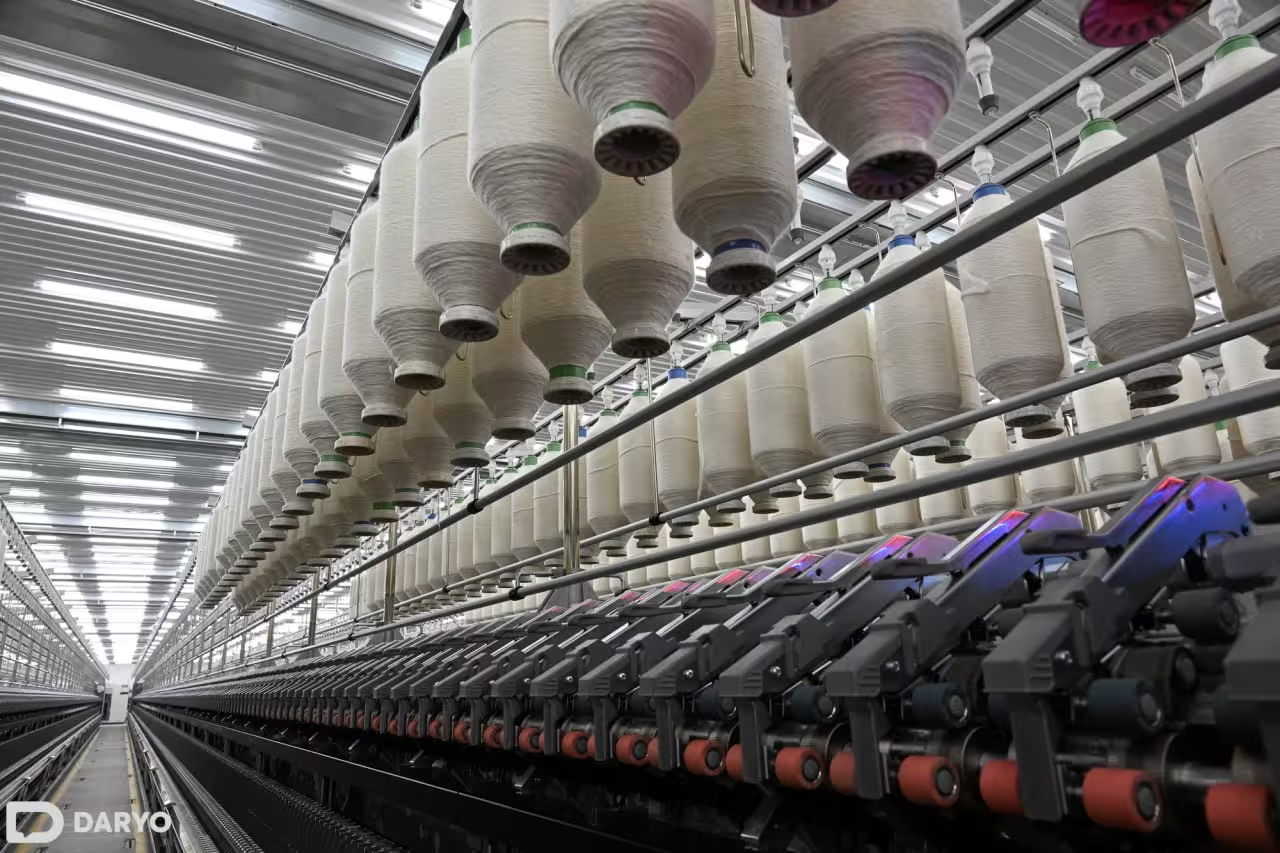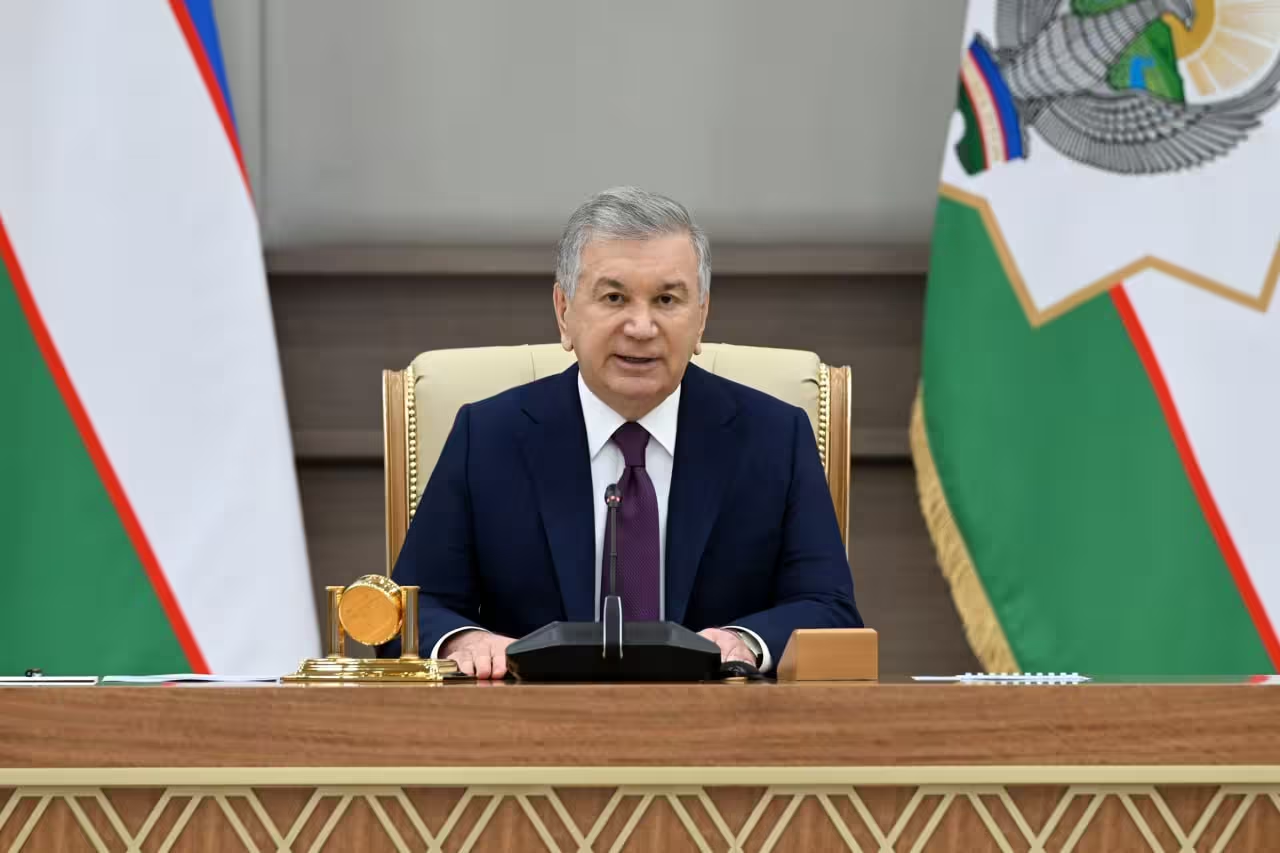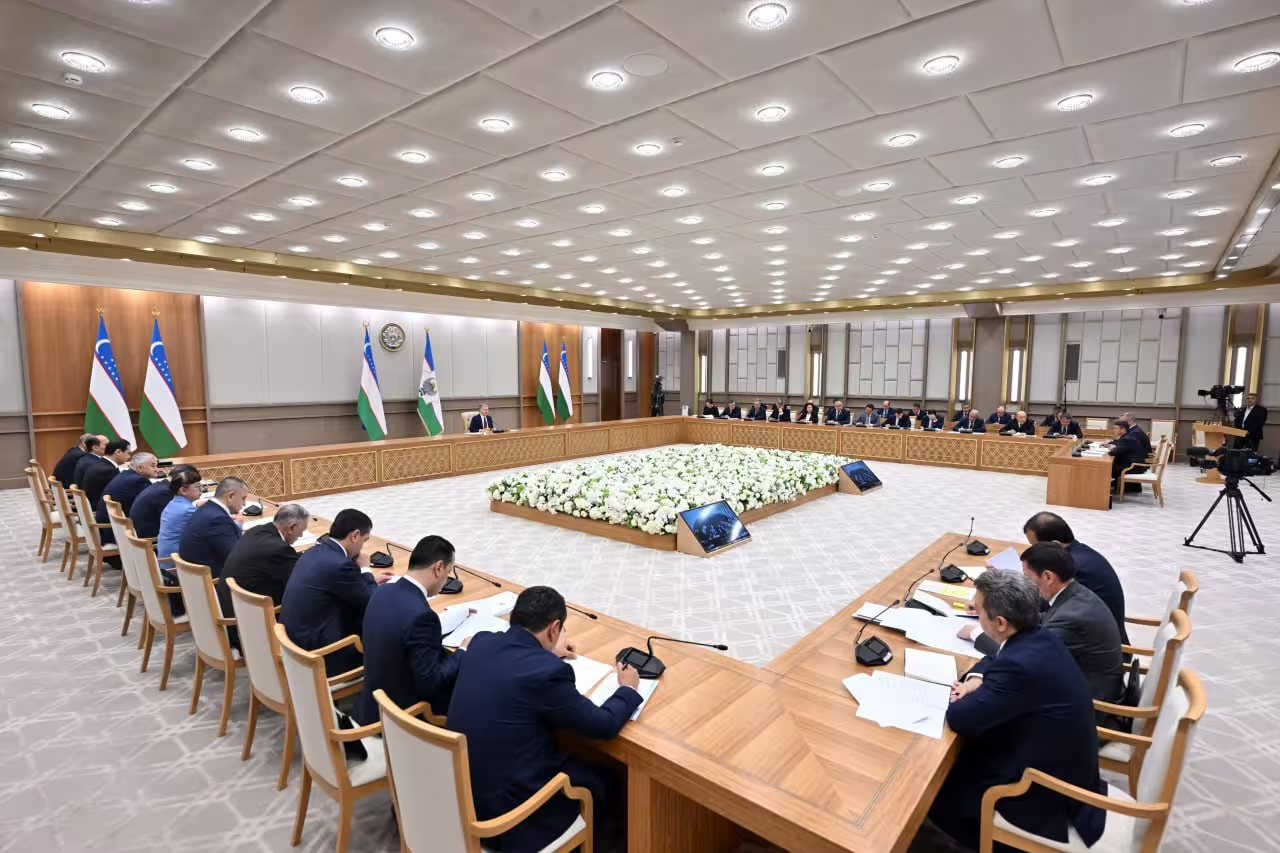Over the past five years, 396 large enterprises worth $3.5bn have been launched in Uzbekistan’s textile sector, boosting production to $10bn and creating more than 500,000 jobs — about 20% of the country’s industrial workforce, according to the presidential press secretary Sherzod Asadov.

The industry, which accounts for 3% of the national economy and 14% of industrial output, is now facing a slowdown in production and exports.
During a videoconference chaired by President Shavkat Mirziyoyev, officials discussed urgent measures to preserve jobs, sustain production, and maintain export volumes amid global market challenges.
A major factor behind the slowdown is the decline in global cotton prices, which have fallen from $3,000 to $1,500 per ton over the past three years. Many clusters are repaying old debts using income from new crops, while the government has extended preferential loans for raw cotton three times since 2022 and introduced subsidies of UZS 1 mn ($80) per ton in 2024 to offset the price drop.

President Mirziyoyev criticized the lack of proactive planning, stressing that economic authorities and research institutions should have prepared alternative strategies. He also warned against speculative activities by companies without sufficient fiber processing capacity that benefit from cheap state resources.
The sector’s debt burden totals $2.2bn in commercial loans, 90–95% of which are in foreign currency, while only 16% of enterprises have international certification. Regional imbalances were also noted, with Andijan, Namangan, Fergana, Navoi, and Tashkent regions having fiber processing capacities two to two-and-a-half times higher than their raw material supply.
Following consultations with more than 200 entrepreneurs, the president announced an “urgent 100 days” program, which includes:
- Extending cluster loan repayment periods to up to five years, deferring interest payments until the principal is paid, freeing UZS 800bn ($64mn) annually in working capital.
- Waiving UZS 377bn ($30mn) in penalties on loans for the 2022–2023 harvest.
- Rehabilitating 144 enterprises with $2.2bn in commercial debt, extending repayment terms to seven years for viable businesses.

- Providing farmers with subsidies of UZS 1mn ($80) per ton for timely, non-destructive cotton harvesting.
- Reimbursing 10% of raw material costs for enterprises growing or purchasing cotton with their own funds.
- Reducing the social tax rate to 1% for all textile enterprises, removing the social register requirement, and lowering the textile sales share threshold from 90% to 70%.
The president said the measures aim to reduce costs, stabilize operations, and improve competitiveness in foreign markets.
Follow Daryo's official Instagram and Twitter pages to keep current on world news.
Comments (0)